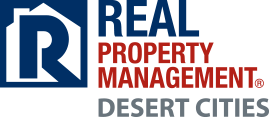Ten Things Landlords Should Do To Keep Great Tenants
It can be difficult to tell bad tenants apart from the good ones. When you do find a great group of renters, it is important to create a trusting relationship that will benefit both parties. Here are ten tips to build a strong trust between landlord and tenant.
- Respond quickly to complaints about noise or reports of criminal activity, such as drug dealing.
If you have specific rules about noise, enforce them. If you are aware of any crimes taking place on your rental property, take action immediately. Evict drug dealers; consult your attorney if you need help, or consider hiring a property management company that includes evictions in its services. If drug dealing is happening on a nearby property that is not owned by you, work with neighbors, the property owner, and the police.
- Schedule maintenance and repairs at times convenient to your tenants, and let them know in advance.
Minimize the impact of repairs and maintenance by scheduling them at the times your renters are least likely to be around, typically between 9 and 5, Monday through Friday. Let your tenants know in advance when repair work is being done, and why. Consider the safety and security of your tenants while the work is taking place (for example, if a tenant’s parking spot will be unavailable during repairs, provide another). After the work is finished, send a thank you note.
- Provide designated parking spots and enforce parking rules.
Having a parking spot with a short walking distance to home is very important for many tenants. Assign parking spots and enforce parking rules. Send warning letters to tenants who break the rules and have their cars towed if they ignore your warning. Also, make sure you have well-marked and sufficient guest parking.
- Follow through on repair requests and other commitments.
It’s simple: do what you say you’ll do. Recognize that all tenants want their repairs handled promptly, efficiently, and predictably. And remember that many tenants are “renters by choice“. They prefer to rent rather than own partly because they want someone else to be responsible for repairs. Have a repair and maintenance process that helps you consistently meet or exceed tenant expectations.
- Give your tenants advance notice of upcoming inconveniences that you’re aware of.
Warn tenants about unexpected inconveniences that will be taking place near their home. If you’re aware of upcoming road closures or a planned power outage, consider sending out a newsletter, email, or a quick text message informing your tenants, so they have an opportunity to prepare or change their plans. You can also keep tenants updated using a Facebook or Twitter account.
- Understand that your tenants want to feel safe at home.
Make sure that any outdoor areas used by tenants at night (such as parking areas, paths, and entries) are well-lit. Keep foliage trimmed, and fences low. Stay on top of repairs. Arrange for a safety and security survey a couple of times a year, and let your tenants know when you’ve made improvements. Also consider giving your tenants some safety guidelines when they move in.
- Make sure all of your tenants follow the House Rules.
Good tenants are good neighbors. In return, they want the same consideration. They will follow the rules you have developed for your rental property, as long as they are reasonable. All of your tenants should read and sign a copy of your rules when they execute the lease. Explain to your tenants that the rules will be enforced. Consider eviction for serious violations.
- Consider allowing pets; and if you do allow pets, make sure owners clean up after them!
Tenant retention has been shown to improve if you allow pets, and certainly there are some great tenants out there who are also animal lovers. If you do allow tenants to keep pets, require them to clean up after them in the lease and require them to keep them on a leash when outside the rental unit. Provide “doggy bags” and garbage cans close by. If any tenants are not complying with your pet policy, issue a written warning. If that doesn’t work, ask them to remove the pet from the rental. Also consider this company–PooPrints. They are the CSI of dog poop for property managers, detecting which pooches are dropping bombs.
- Be polite, courteous, and professional.
Recognize that being a landlord requires you to have great customer service skills. Never complain about your job or personal life. When the phone rings and the call is from a tenant who is paying you thousands of dollars a year, politely ask how you can be of assistance, no matter how bad your day is going.
- Create opportunities to appreciate your good tenants.
I have read that you have to thank someone seven times before they really feel appreciated. I’m not suggesting that you maintain a spreadsheet tracking your appreciative words, but you should say “thank you” or send thank-you cards when appropriate. Gestures such as these go a long way in making your good tenants feel welcome and appreciated.
Good tenants know they are good tenants, and they expect to be treated that way. It’s worth the extra effort to keep them–they pay their rent on time, they maintain your property well, and they’re generally pleasant to deal with. If you are reliable, professional, and courteous, they will be too.
At Xepco Properties we prioritize getting the most out of your investment. These tips are some of the most important for a landlord to try and follow. If you would like some assistance with your property, give us a call: (760) 501-8700

